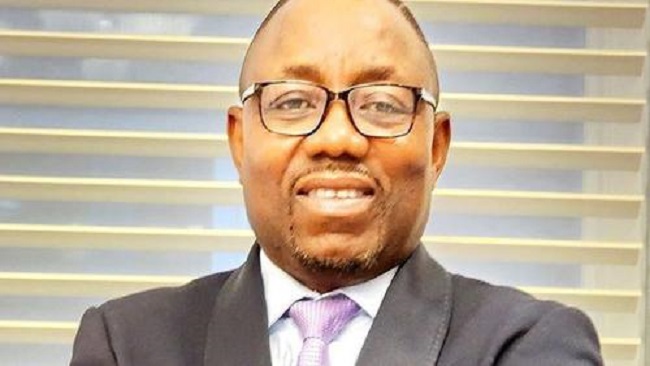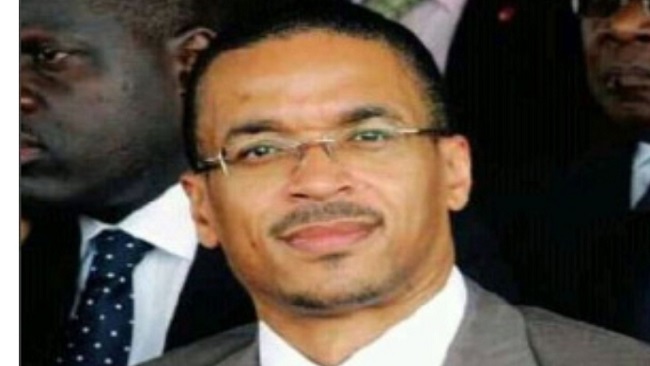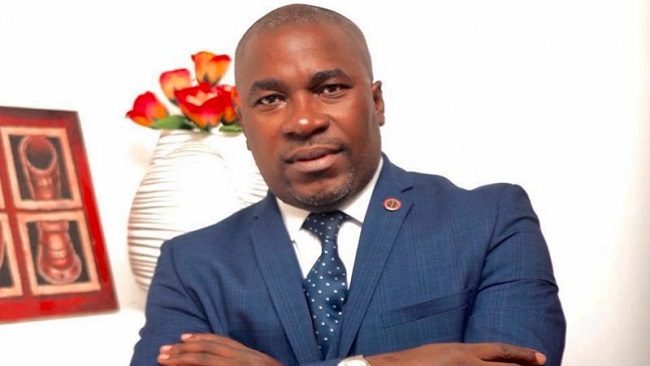14, October 2022
CPDM Crime Syndicate: ELECAM wants huge ID card backlog cleared ahead of polls 0
The chairman of Cameroon’s election management body (ELECAM), Abrams Enow Egbe, recently held talks with the delegate general for national security, Martin Mbarga Nguele, on clearing the many blockages that stand in the way of digital ID card issuance in the country.
The national identity card is a compulsory ID credential for those of voting age to participate in the electoral process in Cameroon, but obtaining the ID in the Central African nation has become a nightmare for millions, with many waiting up to two years to get the credential.
The talks, which took place 10 October, were part of a series of consultation meetings that ELECAM has held with different stakeholders in past weeks with the aim of gathering opinions and suggestions on how to better organize the next cycle of elections coming up between 2023 and 2025.
Cameroon has national assembly and presidential elections in 2025, but before then, in 2023, a new senate has to be voted in.
Enow Egbe told reporters that apart from discussing how the ID issuing authority (known by the abbreviation DGSN) can clear the backlog of ID card applications, it is important for Cameroonians who have not withdrawn their cards from police stations to visit such stations to check whether their credentials are already available for collection. People apply for the document at their closest police station accredited within the scheme and then collect the finished card there.
“The main focus of our discussion was on the obtention of the national identity card. Many Cameroonians are complaining that they are unable to obtain their cards. We got clear and precise information from the delegate general who assured us that all will be done for citizens to get the national ID card,” said Enow Egbe.
“However, we want to inform Cameroonians to first go and check out their ID cards from the different police stations where they applied for them. There are many of the cards abandoned there. They have to collect them because they need it to register for elections.”
It is worth mentioning that the national identity card is crucial at two major stages of the electoral process in Cameroon. It is a requirement at the time of enrolling on the electoral register, and then for identity verification at the time of voting at polling stations. Cameroon does not yet use biometrics for voter verification.
The call by ELECAM for the DGSN to rush ID production has been hailed as necessary as it comes at a time when problems with delivery of the cards in the country have reached strange and disturbing proportions.
Recently, many citizens have been expressing their frustration with the process, asking why previously-announced plans to overhaul the current ID system have stalled.
There have also been testimonies in local media, seen by Biometric Update, from citizens confessing to paying bribes from between XAF50,000 (US$74) to XAF 500,000 (US$740) to obtain the document within a few days.
Source: Biometric Update

























16, October 2022
Communist Party’s 20th Congress gets under way, offering clues to China’s future 0
The Chinese Communist Party (CCP) Congress kicked off in Beijing on Sunday, an event expected to confirm Xi Jinping as China’s first leader since Mao Zedong to serve three successive terms. Decisions unveiled at the congress – especially the fate of Prime Minister Li Keqiang – will indicate whether Xi plans to continue centralizing power and the direction of China’s economic policies.
The 20th Chinese Communist Party (CCP) Congress opening on October 16 was a celebration of the world’s largest political party, which boasts over 96 million members throughout China. However, all eyes are on one man: Chinese leader Xi Jinping.
Following the horrors of the Great Famine and the Cultural Revolution – and the death of Mao Zedong, who presided over both – the CCP under Deng Xiaoping set a two-term limit for its leaders in 1982. Xi abolished this rule in 2018, paving the way for him to rule indefinitely after his second term ends in 2023.
Drastic security measures
The leader of the world’s second-largest economy has done everything possible to ensure the congress runs smoothly. Beijing has been under special security measures since June. More than a million people have been arrested in the “public security crackdown” that has made the Chinese capital into a fortress. Employees of major companies based in Beijing are not allowed to leave the city for the duration of the congress. Visitors carrying bottles of water have to take a sip in front of police officers to show they are not carrying dangerous liquids.
And Chinese internet censors scrambled to remove any mention of a rare protest in Beijing on October 13 in which a banner displayed from a bridge called for “dictator and traitor Xi Jinping” to leave power.
Xi gathered all the Central Committee members on October 9 for a final rehearsal of the announcements to be made during the congress. The event will thus be a matter of rubber-stamping decisions already taken.
This comes after a rocky period for China. Over the past two years, “we’ve seen the coronavirus pandemic and China’s very costly zero-Covid policy; Sino-American tensions amid trade disputes; and a deepening of ties between Beijing and Moscow at a time when [President] Vladimir Putin has brought condemnation on Russia by invading Ukraine”, said Marc Lanteigne, a specialist in Chinese politics at the Arctic University of Norway.
Xi has concentrated so much power in his hands that it will be hard for him to avoid responsibility if the policies come under fire, Lanteigne said. So at the very most, the congress will strengthen Xi’s hold on the CCP – and at the very least, “it will show that, despite everything, Xi is still enormously powerful”.
But other than that, it is very hard to predict what will come out of the congress, because the CCP has become so “opaque” under Xi, noted Daniel Leese, a historian and China expert at the University of Freiburg.
Before previous CCP congresses, China specialists used to enjoy predicting who would be in and who would be out. Often, working papers would be leaked indicating someone was on the way up or on the way down as various party factions jostled for power.
This time, there are precious few signs to interpret, and those that remain are hard to decipher.
Leese said one recent trend has been a “decline in the number of pro-Xi propaganda articles” in the official press, adding: “This could mean that Xi has lost his shine – or it could mean he’s become so powerful that he doesn’t need propaganda anymore.”
Culled from France 24